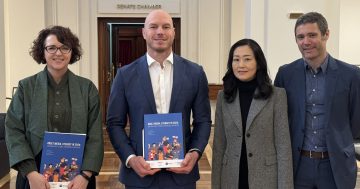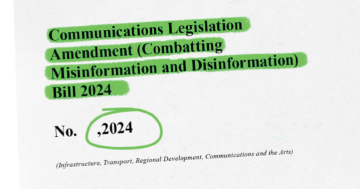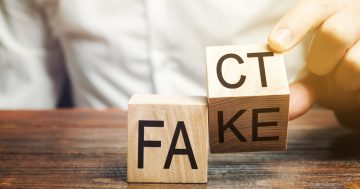 With a new wave of catastrophic news headlines invading people’s social media feeds, University of Canberra (UC) Professor, Sora Park has offered some helpful hints and tips on how to avoid false information online that could be very damaging.
With a new wave of catastrophic news headlines invading people’s social media feeds, University of Canberra (UC) Professor, Sora Park has offered some helpful hints and tips on how to avoid false information online that could be very damaging.
Speaking with Senior Communications Coordinator at UC, Elly Mackay, Dr Park described misinformation as any information that was false or misleading, and could be embedded in all sorts of digital content – including photos, videos and text.
“It can impact people’s attitudes or behaviour, and is potentially harmful for them or to others,” Dr Park said.
She said older people tended to be more vulnerable to misinformation online because they weren’t as accustomed to the platforms and systems.
“Often, in the real world, they might be critical thinkers who can identify false information in many different forms, but as soon as its online, the whole environment is unfamiliar to them,” Dr Park said.
“Younger people tend to be more aware of misinformation online, because they’re on those platforms a lot more – whereas if an older person has just signed up to Facebook to stay in touch with friends and family, they’re much more susceptible,” she said.
“If you see anything that’s suspicious or if you’re sceptical of anything, the best thing to do is get out of that site – then search for that topic elsewhere, and try to find a trusted source that validates that information or explains what it is.”
She said that often, people remained on one platform and tried to find answers there, but that was not the way to verify things.
Dr Park encouraged people to think before they shared content online, saying the impact of misinformation was big because people shared it.
“If nobody shares it, then it’s contained,” she said.
“So the first thing is to think ‘should I share it?’ – and then a more proactive way of doing it is to report any false information that you do come across.”
Discussing news information ‘green flags’, Dr Park said people should look for recognised news brands and whether there was an author credited for the article.
Overall, she advised people not to be afraid of encountering misinformation online, just to be aware of the signs that something might not be quite right.











